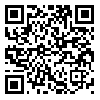Volume 13, Issue 5 (7-2014)
ijdld 2014, 13(5): 425-433 |
Back to browse issues page
Download citation:
BibTeX | RIS | EndNote | Medlars | ProCite | Reference Manager | RefWorks
Send citation to:



BibTeX | RIS | EndNote | Medlars | ProCite | Reference Manager | RefWorks
Send citation to:
Baziar N, DJafarian K, Shadman Z, Qorbani M, Khoshniat Nikoo M, Razi F. EFFECT OF VITAMIN D SUPPLEMENTATION ON IMPROVING VITAMIN D LEVELS AND INSULIN RESISTANCE IN VITAMIN D INSUFFICIENT OR DEFFICIENT TYPE2 DIABETICS. ijdld 2014; 13 (5) :425-433
URL: http://ijdld.tums.ac.ir/article-1-5260-en.html
URL: http://ijdld.tums.ac.ir/article-1-5260-en.html
Nima Baziar1 
 , Kurosh DJafarian1
, Kurosh DJafarian1 
 , Zhaleh Shadman2
, Zhaleh Shadman2 
 , Mostafa Qorbani3
, Mostafa Qorbani3 
 , Mohsen Khoshniat Nikoo *
, Mohsen Khoshniat Nikoo * 
 4, Farideh Razi5
4, Farideh Razi5 


 , Kurosh DJafarian1
, Kurosh DJafarian1 
 , Zhaleh Shadman2
, Zhaleh Shadman2 
 , Mostafa Qorbani3
, Mostafa Qorbani3 
 , Mohsen Khoshniat Nikoo *
, Mohsen Khoshniat Nikoo * 
 4, Farideh Razi5
4, Farideh Razi5 

1- 1. Department of Clinical Nutrition, School of Nutritional Sciences and Dietetics, Tehran University of Medical Sciences, Tehran, Iran
2- 2. Endocrinology and Metabolism Research Center, Endocrinology and Metabolism Clinical Sciences Institute, Tehran University of Medical Sciences, Tehran, Iran
3- 3. Department of Community Medicine, School of Medicine, Alborz University of Medical Sciences, Karaj, Iran
4- 2. Endocrinology and Metabolism Research Center, Endocrinology and Metabolism Clinical Sciences Institute, Tehran University of Medical Sciences, Tehran, Iran ,khoshniatmohsen@yahoo.com
5- 5. Diabetes Research Center, Endocrinology and Metabolism Clinical Sciences Institute, Tehran University of Medical Sciences, Tehran, Iran
2- 2. Endocrinology and Metabolism Research Center, Endocrinology and Metabolism Clinical Sciences Institute, Tehran University of Medical Sciences, Tehran, Iran
3- 3. Department of Community Medicine, School of Medicine, Alborz University of Medical Sciences, Karaj, Iran
4- 2. Endocrinology and Metabolism Research Center, Endocrinology and Metabolism Clinical Sciences Institute, Tehran University of Medical Sciences, Tehran, Iran ,
5- 5. Diabetes Research Center, Endocrinology and Metabolism Clinical Sciences Institute, Tehran University of Medical Sciences, Tehran, Iran
Abstract: (10449 Views)
Background: Vitamin D deficiency is associated with impaired insulin secretion, glucose intolerance and type 2 diabetes. This study was conducted to investigate the effects of supplementation with 50,000 IU vitamin D on improving serum vitamin D levels and insulin resistance in vitamin D insufficient or deficient type 2 diabetic patients.
Methods: In this double blind randomized clinical trial, 81 type 2 diabetic patients with vitamin D levels between 10-30 ng/ml were randomly assigned to intervention (50,000 IU vitamin D3 once a week) and control (placebo once a week) groups according to gender. The study duration was 8 weeks. At the beginning and the end of study, blood samples were collected after 12 hours overnight fasting and fasting serum glucose, insulin and 25-hydroxyvitamin D were measured. Insulin resistance was obtained by HOMA-IR calculation.
Results: After 8 weeks supplementation with vitamin D, 25-hydroxyvitamin D level was significantly increased and reached to normal levels in the intervention group. Fasting serum glucose and insulin concentrations and HOMA-IR were significantly decreased in the vitamin D group, but there were no significant changes in the placebo group.
Conclusion: Supplementation with 50,000 IU vitamin D for 8 weeks compared to placebo can improve inadequate levels of vitamin D and glycemic indicators in vitamin D insufficient or deficient type 2 diabetic patients.
Type of Study: Research |
Subject:
General
Received: 2014/11/11 | Accepted: 2014/11/11 | Published: 2014/11/11
Received: 2014/11/11 | Accepted: 2014/11/11 | Published: 2014/11/11
Send email to the article author
| Rights and permissions | |
 |
This work is licensed under a Creative Commons Attribution-NonCommercial 4.0 International License. |



